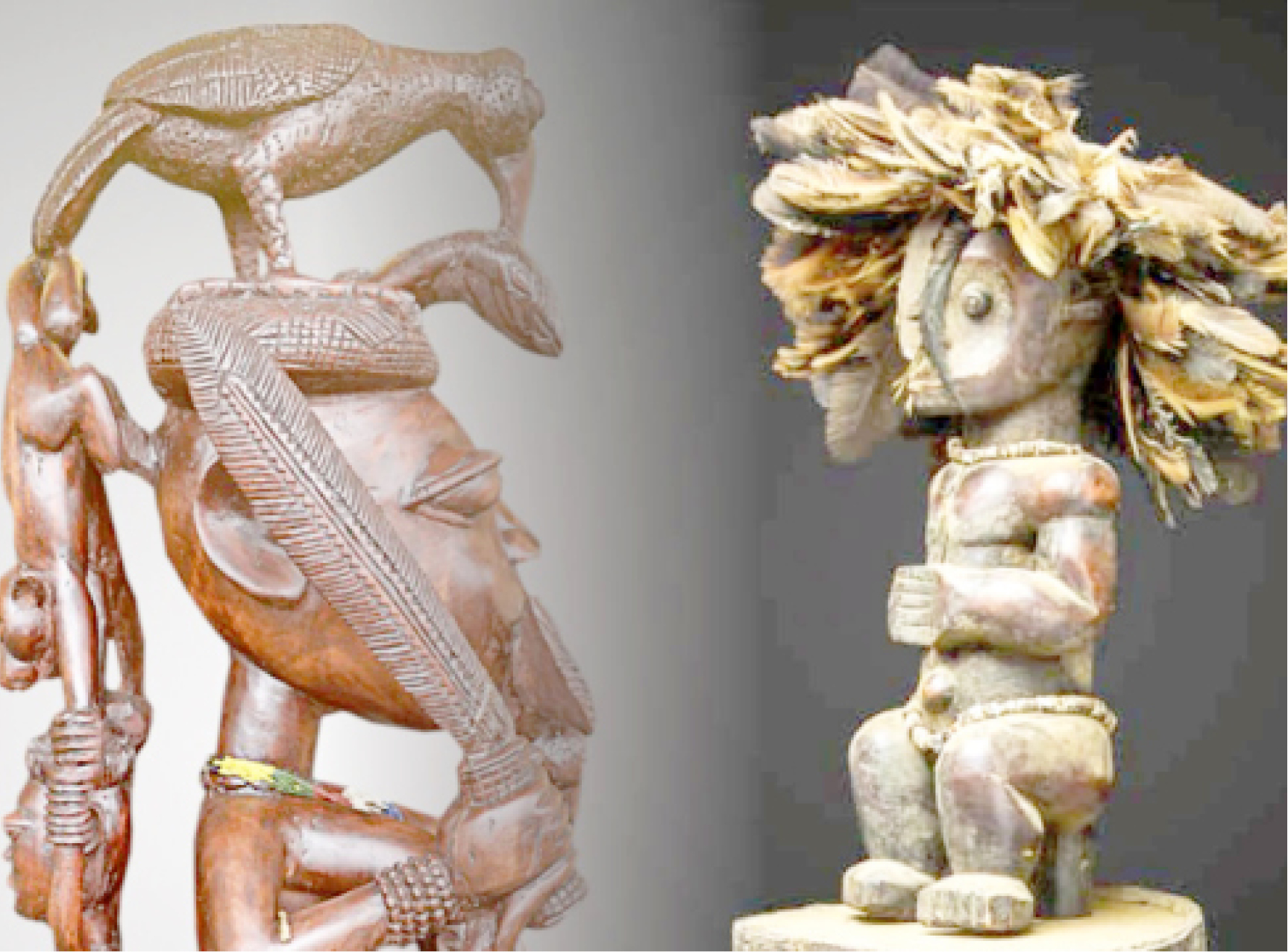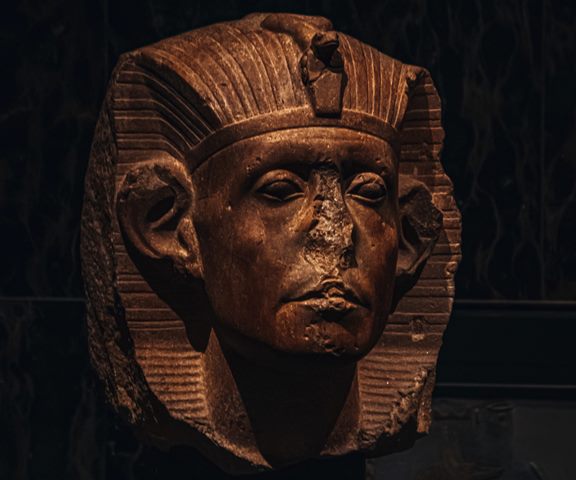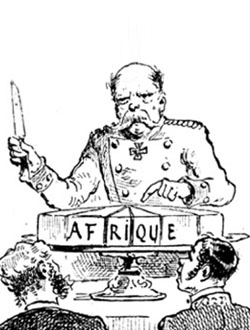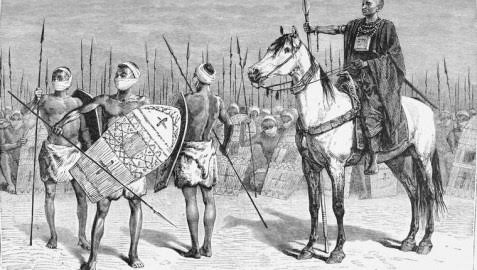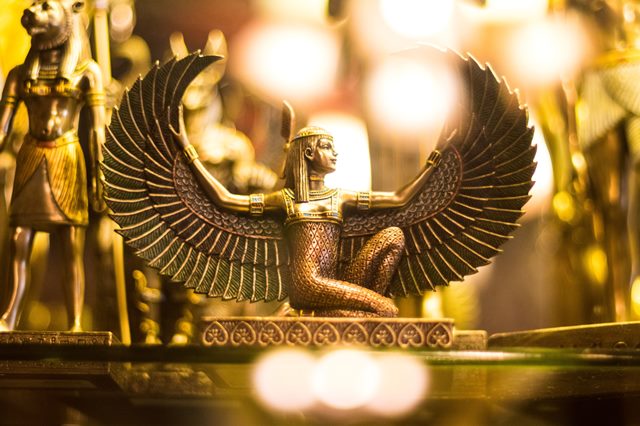African gods generally have a bad rep. The westernization of Africa has made locals look upon their past gods as evil and undesirable. There is also an unspoken stigma for anyone who even dares to learn more about them. And the same is true for Yoruba gods. Africans love watching movies about foreign gods like Thor, Loki, Odin, and Zeus. They love these films without knowing these are the local gods for these foreigners.
But it’s not only the supernatural that has been rejected. Even certain indigenous traditions and the old Religion have been devalued and abandoned for Christianity and Islam.
The myths that describe the presence of the Yoruba gods are quite intriguing. But aside from that, isn’t it also expected of us to cherish our traditions and uphold our religious beliefs? It’s okay if you’ve chosen to follow another religion as long as you strongly believe it’s the right path to total spiritualism. However, you owe it to your roots to at least learn the ways of old.
We’ve detailed an article about the Yoruba gods and what they represent. If you’re Igbo, you can read this: What is the Religion of the Igbo to learn more about the traditions of the easterners.
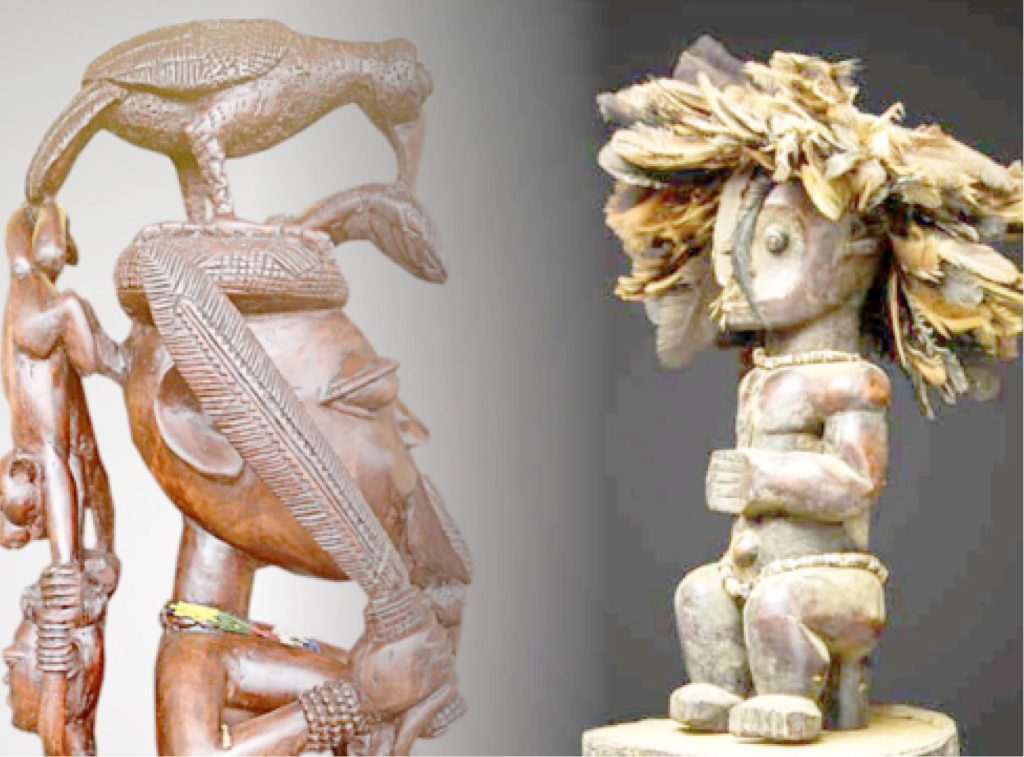
Who Are Yoruba Gods?
The local deities (orishas) were known for the duties of maintaining order and control over the populace. And yes, they had already arrived before we did. The orishas are said to have previously walked the earth and even lived here, according to various myths.
When the planet became too corrupt for them to continue to stay, they moved to a supernatural place which was up in the sky. While on earth, they took wives, had children, and lived like normal humans. That was until they had to leave because it became too dirty for them. However, that doesn’t imply that their extraterrestrial existence has vanished from the earth. It persists, and all that believe in them still call on them for advice and perhaps to grant their heart desires when they are in need.
Not all of these deities are alike or behave in the same way. They differ in personality, mannerisms, and preferences. This is why we have gathered detailed information on several Yoruba gods and what they stand for.
The Religion of the Pre-colonial Oyo empire (The Reign of the Orishas)
According to archaeological evidence, the development of orisha worship happened between 500 and 300 BCE. It is likely much older because so many West African areas remain unexplored. The Yoruba people believe that Olodumare is too vast for the human mind to comprehend. Therefore, it unleashed several portions of itself, each of which was randomly assigned a definite zone of influence.
During the Transatlantic Slave Trade, when many Yoruba people were sold into slavery, the Orishas journeyed to the Americas and the Caribbean via their believers. As a result, they were able to merge with Catholic saints who were Christians.
Since the saints in Catholicism played the same function as the Orishas in the Yoruba’s ancestral Religion—that is, as mediators between a believer and the supreme deity — the Yorubas were able to continue practicing their Religion while formally converting to Catholicism.
Read: What is the Connection Between Oduduwa and Yoruba?
Modern-day Yoruba Religion Development
Maybe we say the good part of the Yoruba being sold into slavery is that they were able to leave prints of the Yoruba religion where they got to. For spiritual vigor, enlightenment, or support with everyday struggles, people today invoke the Orishas in private or group rituals.
Although there are numerous Orishas, seven are thought to be the most potent and are currently the most well-liked by followers in the present era. Orisha worship is still performed today by people all over the world in many ways. This includes the Santeria, Candomblé, and Vodun systems, as well as nominal Catholics, Wiccans, and New Age believers.
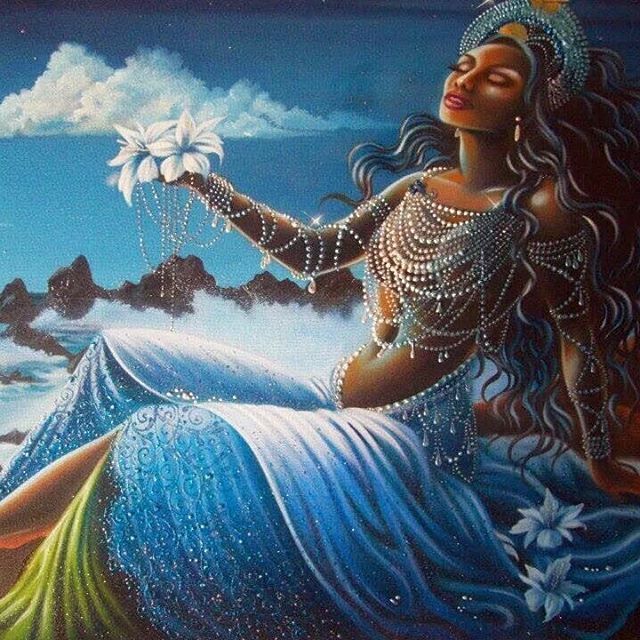
An example is Yemaya (Yemoja) of Cuba, this Religion that involves a Yoruba goddess was adopted by the Cubans a long time ago. And to date, it is important to their Cuban folklore dance and their Cuban Salsa. According to them, Yemaya is the mother of all beings and the source of all life. It is also believed she rules over the moon and all feminine secrets. She frequently appears as a mermaid. She rules over fertility, childbirth, and healing and is the guardian of women and their numerous offspring. Obviously, this correlates with the attributes of the Yoruba goddess, Yemoja.
Some of the Existing Yoruba Gods and What They Stand For
Below are some of the existing Yoruba gods (orishas) and what they represent:
Sango
Remember Thor? Well, Sango is the “god of Thunder and Lightning” in Yoruba folklore. He is also known as “Jakuta.” Sango presided over the Old Oyo Kingdom as its third king. His two-edged axe is typically seen in his statues. In addition, Sango is one of mythology’s greatest fighters. The fifth day of the week is dedicated to his worship. His worshipers dress in red clothing, which is thought to be what he wears, and perform the Bata dance at his festivals.
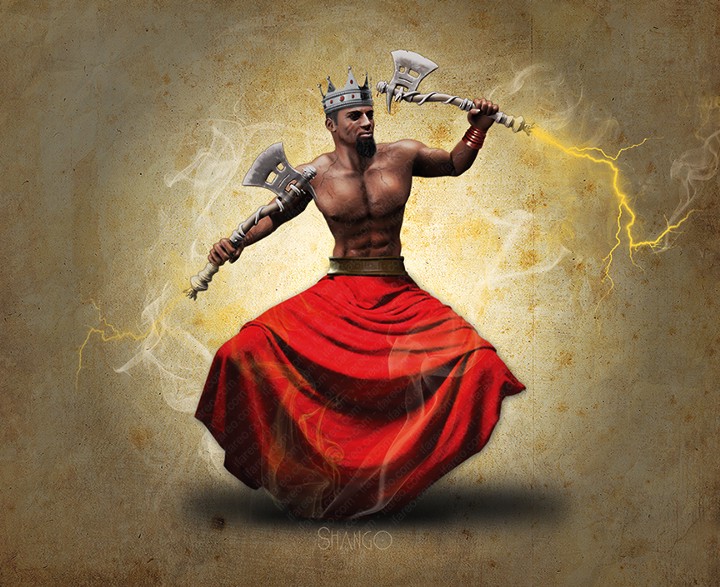
During Sango’s reign, he desired to arouse men’s terror. He sent for Oyo’s top juju producers and gave them instructions on how to create jujus that would boost his abilities. Sango received various juju potions from these men, but he was dissatisfied with their performance.
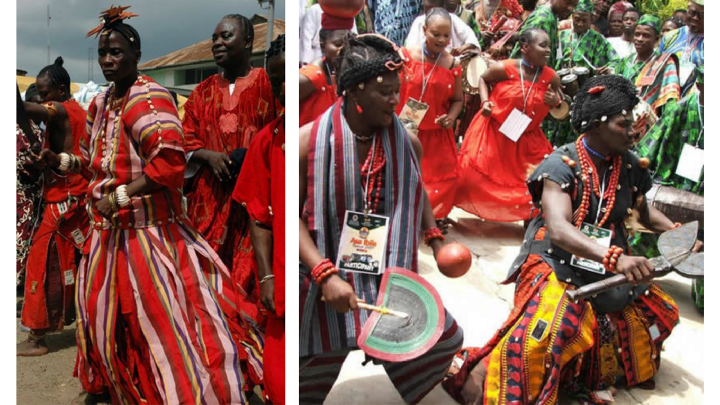
Then, he decided to seek assistance from Esu, the trickster god that had power over every other god, including Sango himself. He dispatched a messenger to Esu’s far-off home to deliver his message. Truly, Esu received the message, and there the journey began. Esu would never give something for free. He always asks for something in return for whatever he gives. However, this is a story for another day. Oya was the wife of Sango, and she failed to follow Esu’s instructions. This caused disaster for Sango’s people but elevated him to the status of a thunder and lightning god.
Olodumare
Olodumare, also known as Olorun, is a Yoruba god from Nigeria who has a position of honor comparable to that of Da among the Fon. It is possible to translate the name Olodu as “someone who is a superior head” or “someone who ‘contains’ the fullness of great traits.” Also, you can translate the name to “one who is utterly flawless” or “with absolute perfection” by adding the suffix -mare, which means “unique” or “perfect-in-itself.” The supreme deity is known as Olodumare, and he holds the same elevated and exclusive status as the God in any monotheistic faith.
Read: What are Yoruba people known for?
According to Yoruba mythology, Olodumare is also the most potent god. In other words, the word “Supreme God” describes him. He is the one who gives the creations of Obatala life and is omnipotent. He is also the creator of the other deities and cosmic forces. His direct worship by Yorubas is not traditional; instead, they invoke him when the other Orisas do not respond to their prayers. He is not the god that Christians frequently reference as thought, but he is a unique being.
Obatala
According to Yoruba mythology, Obatala is the one who founded the human race. He is the father of all Orisas. Also, he was the ruler of Ife and lived on the earth in a mortal body. Unfortunately for him, he got drunk one night, and his brother seized an opportunity to snatch the throne from him.
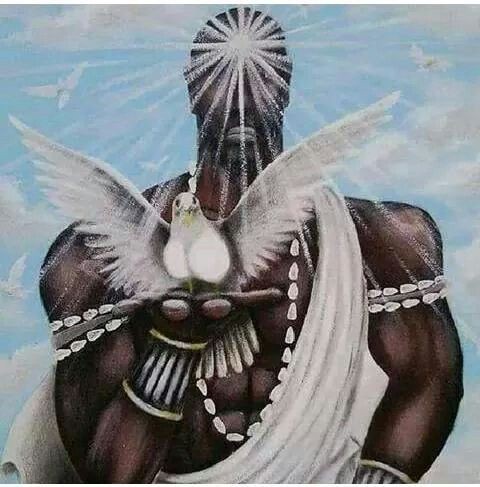
Orunmila
Another powerful Orisa is Orunmila. He is a “god of wisdom, knowledge, and divination.”. He supposedly witnessed the genesis of the universe. The Yorubas claim that he once assumed human forms, traveled to the earth as a priest, and instructed priests in the extremely spiritual Religion known as Ifa. The central body of worship known as Odu in the Ifa consists of 256 volumes. The Odu Ifa is an oral book that is only available to the Religion’s priests and is passed down from one generation to the next. It is a reference book on life and the human race. To help his followers make decisions, Orunmila provides his followers with visions that provide a glimpse into the future.
Ogun
Ogun is the Yoruba “god of war and iron.” He is a fighter, and he assumed the identity of Tobe Ode, a hunter, as the first Orisa to arrive on Earth. Also, according to Yoruba cosmology, he was the first ruler of Ife, which is known as the birthplace of life. He is typically revered by people who worship the ancient deities, including warriors, hunters, blacksmiths, technologists, and drivers. Metal, dogs, and palm fronds serve as his emblems.
Oduduwa
All Yoruba people revere Oduduwa as the Earth’s creator and their ancestors. (The Yoruba sometimes refer to themselves as “Omo Oduduwa,” which translates to “Children of Oduduwa.”) According to Yoruba history, Oduduwa previously had Ile-Ife as his capital, and he ruled all of Earth. It is believed that the Ooni, the name of the ruler of Ile-Ife, is a direct descendant of Oduduwa.
Aganju
Aganju is a fire-related god who was a warrior monarch and walked with a sword as a staff. Contrary to what is thought in Cuban-style orisa, he is not connected to the volcanoes in Yorùbáland in West Africa.
Esu
Esu is the orisa of crossroads, duality, beginnings, and balance. He is regarded as a master of dissimulation due to his ability to assume various identities. He is capable of deceiving others, engaging in cruel pranks and jokes, outright robbing people or gods, and all the while convincing himself that he did nothing wrong. Esu is the skilled rhetorician with whom everyone wants to get along, despite the fact that one can never be sure of his allegiance. Although Esu’s mischief, deception, or treachery cannot be avoided, one does not have to allow Esu to act in his natural manner.
Before you go…
Hey, thank you for reading this blog to the end. I hope it was helpful. Let me tell you a little bit about Nicholas Idoko Technologies. We help businesses and companies build an online presence by developing web, mobile, desktop, and blockchain applications.
As a company, we work with your budget in developing your ideas and projects beautifully and elegantly as well as participate in the growth of your business. We do a lot of freelance work in various sectors such as blockchain, booking, e-commerce, education, online games, voting, and payments. Our ability to provide the needed resources to help clients develop their software packages for their targeted audience on schedule is unmatched.
Be sure to contact us if you need our services! We are readily available.
[E-Books for Sale]
1,500 AI Applications for Next-Level Growth: Unleash the Potential for Wealth and Innovation
$5.38 • 1,500 AI Applications • 228 pages
Are you ready to tap into the power of Artificial Intelligence without the tech jargon and endless guesswork? This definitive e-book unlocks 1,500 real-world AI strategies that can help you.
Put Your Tech Company on the Map!
Get featured on Nicholas Idoko’s Blog for just $50. Showcase your business, boost credibility, and reach a growing audience eager for tech solutions.
Publish NowSee All 1,500 AI Applications of this E-Book
750 Lucrative Business Ideas: Your Ultimate Guide to Thriving in the U.S. Market
$49 • 750 Business Ideas • 109 pages
Unlock 750 profitable business ideas to transform your future. Discover the ultimate guide for aspiring entrepreneurs today!
See All 750 Business Ideas of this E-Book
500 Cutting-Edge Tech Startup Ideas for 2024 & 2025: Innovate, Create, Dominate
$19.99 • 500 Tech Startup Ideas • 62 pages
You will get inspired with 500 innovative tech startup ideas for 2024 and 2025, complete with concise descriptions to help you kickstart your entrepreneurial journey in AI, Blockchain, IoT, Fintech, and AR/VR.
We Design & Develop Websites, Android & iOS Apps
Looking to transform your digital presence? We specialize in creating stunning websites and powerful mobile apps for Android and iOS. Let us bring your vision to life with innovative, tailored solutions!
Get Started Today